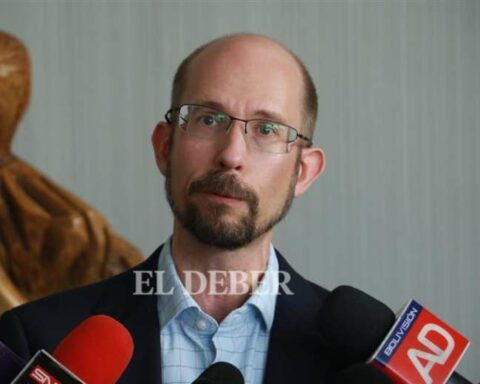By Walter Vasquez
That up to 70% of the workers in the decentralized and decentralized public sector are from the municipality, locality or region where the state institution is located, is what is proposed by a bill that will begin to be discussed this month in the Chamber of Deputies. The proposal seeks to provide job opportunities to professionals from the regions where the State entities or companies are located.
The draft law on ‘Prioritization of Local Personnel in Public Offices and Jobs’ establishes for the decentralized, decentralized level and the autonomous territorial entities the hiring of workers (up to 70%) who are from the department, municipality, locality or region where they are Find the state entity or company.
“The private sector must adapt to comply with this law, according to its functions, objectives, possibilities and reality,” the text cites.
The norm is presented as a response to the growth in the demand for employment in the regions in recent years, especially of young people and women, according to the designer Mariel Marín.
“In Beni; for example, much more than 50% of the staff of public institutions is from Cochabamba or La Paz. At Entel and ENDE, he added, “they bring in professionals from the interior to fill high-ranking positions, when in our own department we have highly trained professionals to carry out these functions. There is not a Benian who is in important positions, ”she questioned.
Job opportunities
The draft law is in the Work and Labor Regime Committee of the Chamber of Deputies, which will begin to analyze and then send it to the respective ministries, for technical and legal review, reported Deputy Rosario García (MAS), secretary of that dependency.
“You have to see if something is missing or if there are observations (…). We have to see where the budget comes from to materialize this preliminary project, ”he added.
The preliminary draft specifies that in the smaller territorial units, the same prioritization criteria for local personnel will be applied to the measure of demographic density and as long as the existing population allows sufficient availability of human resources to carry out the respective functions.
People who lack experience and training, he indicates, will have the opportunity to perform functions at basic levels and positions, and will be able to develop from them the public administrative career.
“We hope that the proposal is approved, but – as has happened many times – they reject the bills that we have presented, just because they are in opposition,” said Marín.
The analyst from the Center for Studies for Labor and Agrarian Development (Cedla), Bruno Rojas, considered that this bill is “outside the context of the labor crisis that the country is experiencing, which has been aggravated by the health crisis.”
The proposal “does not respond to the old demand of several regions, that the projects carried out by the State and the private sector prioritize the hiring of workers from the municipality or the corresponding region,” he said.
According to the expert, at the moment the only active labor policy promoted by the Government to address the problem of unemployment unleashed by the pandemic is the Employment Support Program II (PAE II).
This program, which includes initiatives to promote entrepreneurship, “is a continuation of a previous policy implemented during the last two administrations of Evo Morales. It does not face unemployment in times of pandemic, but rather bets on the same recipes for labor insertion (of young people, for example) ”, he affirmed.








